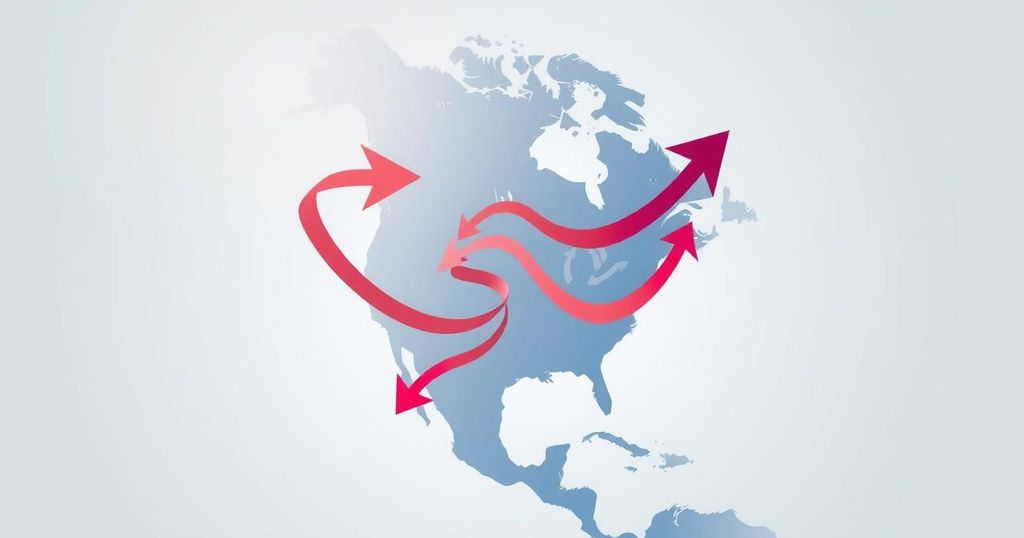Trump’s Tariffs: Economic Impacts and International Repercussions

President Trump stated that tariffs on Canada and Mexico could inflict “some pain” on Americans while asserting that Canada relies on its trade surplus with the U.S. Canada retaliated with its own tariffs, and experts warn that the actions may lead to increased inflation and economic hardship for U.S. households, calling into question the long-term viability of such policies.
President Donald Trump expressed on Sunday that the recent tariffs imposed on Canada, Mexico, and China may lead to “some pain” for American consumers. He asserted that these trade penalties could disrupt long-standing partnerships in North America and exacerbate tensions with China. Trump emphasized his belief that Canada’s economy relies heavily on its trade surplus with the U.S., claiming that without it, Canada would struggle to survive as an independent nation.
Canadians, particularly their ambassador to the U.S., Kirsten Hillman, have expressed confusion regarding Trump’s stance, viewing Canada as a loyal ally. Following Trump’s tariff announcement, which included a 25% tax on Canadian goods and a 10% tax on energy products, Canada retaliated with tariffs totaling 25% on more than $155 billion of U.S. goods such as alcohol and fruits. Canadian Prime Minister Justin Trudeau urged his citizens to support local goods in response, highlighting potential economic consequences across North America.
The tariffs, set to take effect on Tuesday, may ultimately affect American consumers and businesses. Trump has suggested that inflation could rise because of these measures, contradicting his earlier campaign promises. While his administration has not detailed the anticipated economic improvements that could justify the tariffs, Trump continues to label them as a necessary measure.
Mexican President Claudia Sheinbaum also announced new tariffs, promoting a united front between Canada and Mexico in the wake of Trump’s actions. The Chinese government has voiced its intention to protect its economic interests, considering legal action through the World Trade Organization. Notably, former Treasury Secretary Larry Summers criticized the tariffs as detrimental to the U.S. economy, predicting they would create inflationary pressure that might backfire politically on Trump.
Additionally, an analysis from Yale’s Budget Lab underscores that American households could face economic losses averaging $1,245 annually due to the tariffs. Goldman Sachs has indicated the likelihood of these tariffs being temporary, noting the uncertain outlook regarding their impact on inflation and the overall economy. As Trump navigates these political and economic challenges, he must consider potential long-term consequences for both his administration and American consumers.
The recent actions taken by President Donald Trump, specifically the implementation of tariffs on imports from Canada, Mexico, and China, have potentially significant implications for the U.S. economy and international relations. These tariffs were introduced as part of Trump’s campaign promise to prioritize American interests, yet they have sparked widespread debate regarding their economic ramifications, including inflation and trade relations with key partners. The trade penalties come at a time when relationships between the U.S. and its Northern American neighbors are already being tested, particularly concerning trade balances and energy exports.
In summary, President Trump’s tariffs on Canada and Mexico may lead to increased inflation and economic strain on American households. While Trump insists these measures are necessary for national interests, the potential backlash from trade partners and impacts on U.S. consumers raise questions about their effectiveness. The situation remains fluid, with possibilities for retaliation and long-term economic repercussions. The administration faces the challenge of balancing political objectives with the economic realities that may ensue from these trade policies.
Original Source: www.theintelligencer.net







